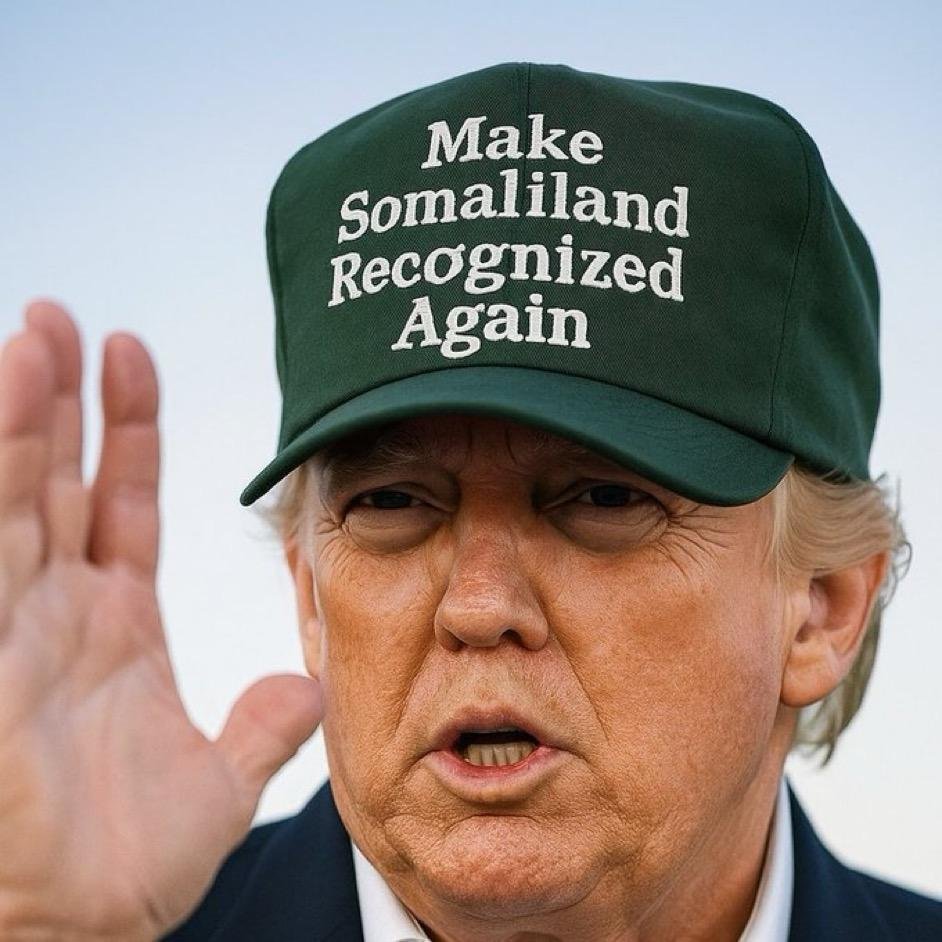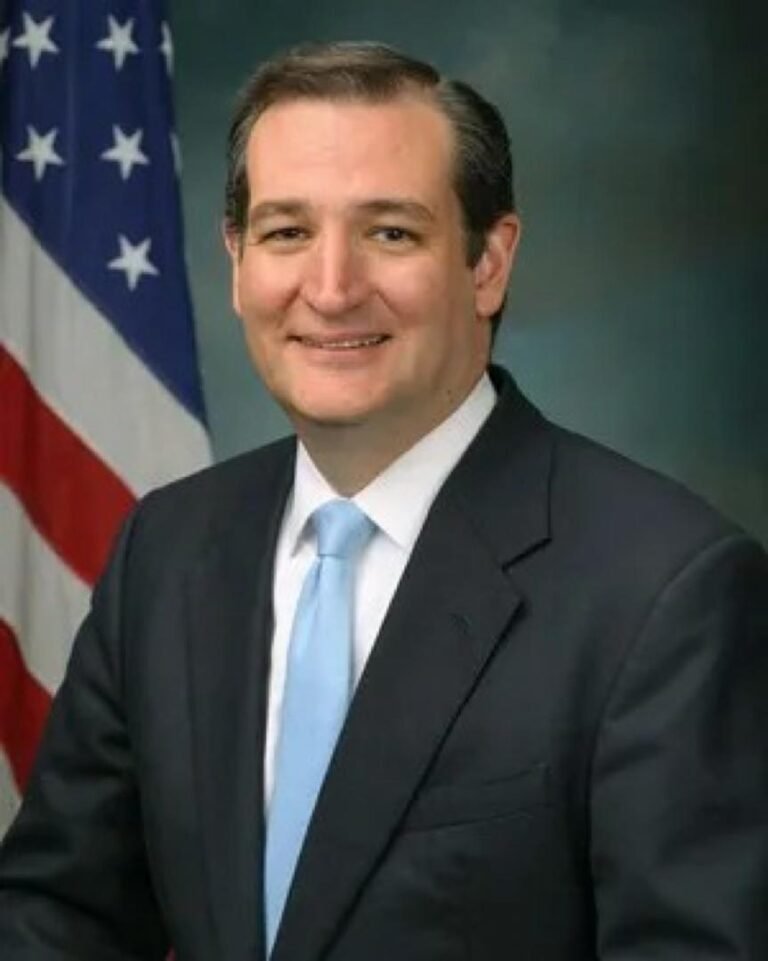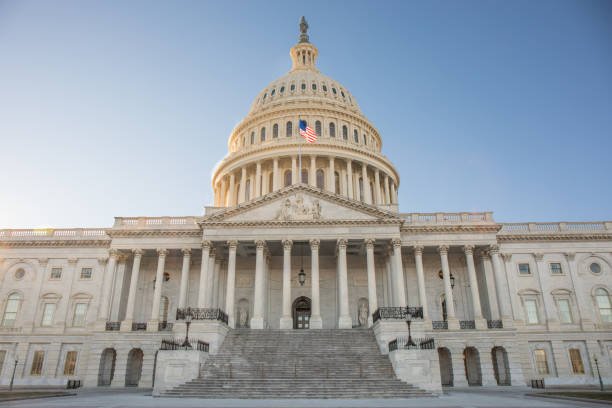
Make Somaliland-Recognized Again
By Prof. Nassir Hussein Kahin, Political Analyst, International Affairs Writer and Managing Editor of bridgingsomaliland.com
The August 14, 2025 letter from U.S. Senator Ted Cruz to President Donald J. Trump marks more than just another milestone in Somaliland’s long journey toward international recognition. It signals the potential beginning of the 21st century’s geopolitical reshaping of superpower competition in the Horn of Africa — with Somaliland at its very heart.
For decades, Somaliland’s sovereignty and territorial integrity have been contested by external actors, often reducing its case to a regional issue. But with this letter, the U.S. — a global superpower with unmatched military, economic, and diplomatic clout — has firmly entered the arena. Compared to the Memorandum of Understanding (MoU) signed with Ethiopia in January 2024, which was a regional arrangement that caught many off guard, this moment is of far greater magnitude. Nearly a year and a half later, the stakes are no longer just about Somaliland and a neighbor; they now involve the world’s leading power, whose strategic presence could reshape the balance of influence across the Horn of Africa and the wider Red Sea corridor.
Historical and Legal Certainty
Senator Cruz’s argument rests on facts that cannot be disputed: Somaliland was a sovereign state recognized by over 35 countries including the major five U.N. Security Members upon independence in June 1960, voluntarily entered into a union with Somalia later that year, and lawfully reclaimed its sovereignty in 1991. This is not secession, as Somalia falsely claims; it is restoration. The African Union itself acknowledged in its 2005 fact-finding report that Somaliland’s case is unique and does not endanger colonial borders elsewhere on the continent.
Political Momentum in Washington
The timing of Cruz’s letter is highly strategic. Multiple bipartisan bills in Congress are already moving toward approval, addressing recognition, security cooperation, and economic partnership. By speaking from the platform of the Senate Foreign Relations Committee, Senator Cruz amplifies Somaliland’s case at the highest levels of U.S. foreign policy. His appeal makes recognition not only more possible but imminent — especially as President Trump faces increasing pressure to formalize this long-overdue decision.
Taiwan: A Key Partner in Democracy and Security
Equally important is the role of Taiwan in this evolving equation. Taiwan and Somaliland have already established diplomatic ties, built on mutual respect, technological cooperation, and shared democratic values. The recent U.S.–Taiwan Coast Guard Maritime Pact — aimed at safeguarding sea lanes, countering illegal activities, and ensuring freedom of navigation — fits seamlessly into Washington’s wider strategy of supporting partners who uphold democracy in critical regions. Somaliland’s Red Sea coastline, paired with Taiwan’s maritime expertise, places both nations at the heart of U.S. security thinking in the Indo-Pacific–Horn of Africa nexus.
This is why Taiwan is uniquely poised to play a vital role in Somaliland’s recognition process. Beyond diplomacy, Taiwan represents one of the world’s most dynamic economies and a technological powerhouse that drives global innovation. For Somaliland, stronger ties with Taiwan mean access to cutting-edge technology, world-class education, agricultural expertise, and medical advancements that can transform our future.
Encouragement for Somalilanders
Every Somalilander has a role to play in strengthening this bond. Support Taiwan and its people. Learn more about their history, culture, and sacrifices in defense of democracy. Understand the global importance Taiwan plays — not just in semiconductors and electronics, but in upholding democratic values in the face of authoritarian pressure. By embracing this partnership, Somaliland aligns itself with a nation that symbolizes resilience, prosperity, and innovation — qualities essential for our own journey to recognition.
Strategic and Security Implications
Senator Cruz’s letter also places Somaliland at the forefront of U.S. strategic planning in Africa. Situated at the mouth of the Red Sea — one of the busiest maritime chokepoints in the world — Somaliland offers stability, democracy, and counterterrorism partnership in a volatile region. By explicitly linking recognition to U.S. military basing rights and access to Somaliland’s critical minerals, Cruz shows how recognition serves not only Somaliland’s interests but also America’s security, economic resilience, and ability to counter rivals like China, Russia, and Iran.
The End of Diplomatic Ambiguity
The “One Somalia” policy has crumbled. What remains is a clear choice: the U.S. can either cling to a failed framework or embrace Somaliland’s rightful return to the international system. Recognition is not about creating a new state — it is about restoring one. The Ethiopia MoU of 2024 cracked the door open; this U.S. intervention, strengthened by the Taiwan factor, could throw it wide.
A Call to Action for Somaliland
Yet with opportunity comes danger. Unlike the Ethiopian MoU, which surprised Somaliland’s political class, the entry of the United States into this equation will trigger fierce countermeasures from Somalia, its allies, and other powers who see Somaliland’s recognition as a threat to their interests. A new era of psychological, media, and destabilization warfare is already on the horizon — bigger, more organized, and more relentless than anything faced before.
For this reason, Somaliland’s government, parliament, opposition parties, civil society, and every citizen must rise to the occasion. Recognition will not be handed over on a silver platter; it must be defended every single day until the world announces it. That means:
• Vigilance in security: police and military must prepare for infiltration, sabotage, and social media-driven destabilization campaigns.
• Unity in politics: government and opposition must put aside rivalries to safeguard national interests.
• Mobilization of society: ordinary citizens should write letters of gratitude to global allies such as Sir Gavin Williamson, Rep. Scott Perry, Senator Ted Cruz, and others who have tirelessly defended Somaliland’s cause.
• Proactive communication: a robust, organized anti-propaganda campaign must counter lies and disinformation in social and mainstream media designed to delegitimize Somaliland’s sovereignty.
• Strengthen Taiwan ties: cultural exchanges, education scholarships, business cooperation, and public diplomacy should expand to solidify this democratic alliance.
This is the hour for Somaliland to stand united and vigilant — from coast to coast, from government halls to village squares, from classrooms to military barracks. The momentum for recognition is burning bright; it must not be allowed to fade.
If handled with wisdom, vigilance, and unity, Senator Cruz’s letter — combined with Taiwan’s partnership — could be remembered not only as a turning point in Somaliland’s history, but as the document that reshaped the geopolitics of the Horn of Africa for generations to come.
Equally important is the role of Taiwan in this evolving equation.
Please subscribe and have your say below:


